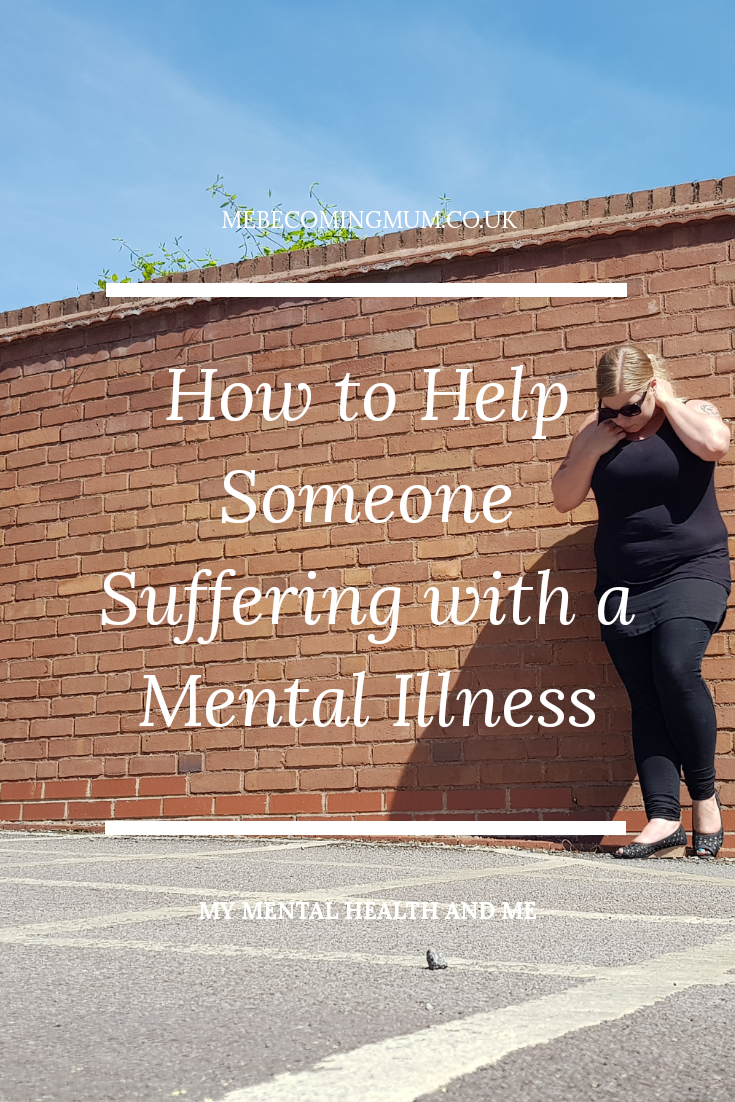How to Help Someone Battling Mental Illness
Trigger warning: This post touches on my mental health battle with advice for how you can help others dealing with their own battles.
One of the hardest, yet bravest things I ever did was admit that I needed help when I was battling post natal depression and anxiety.
If you've read my post for Mental Health Awareness Day 2018 here you will already know a little about my mental health issues. Today I'm sharing my top tips for how to help someone you know is dealing with mental health issues.
Ten ways you can help someone who is battling a mental illness
1. Make sure they seek the help they need
The best thing that John did for me was to encourage me to seek medical help. He booked the appointment for me, made sure I got there and stayed by my side throughout the whole process. If you know that someone is suffering, make sure that they go and get the help they need.
2. Let them know you're there for them
Everyone, no matter how strong and independant they are, needs someone by there side who will stick through it all with them. John and I made vows on our wedding day, ‘in sickness and in health’ and he has stuck with that even when the sickness was in my mind. My best friend has also been there, at the end of the phone or messaging me just to say, “Hi, thinking of you.” Knowing I had these people by my side was a lifeline for me.
3. Don't ask them how they are
This is a pet peeve of mine. If you ask me, "how are you?" nine times out of ten I won't know how to answer. The same will be for most people suffering through mental health problems. Even when we do answer, how often do you hear, "fine" or "okay" when actually the reality is far from? Instead, just let them know you’re thinking of them and let them know you’re there if they need you.
4. Don't tell them to get over it, or that it's all in their head
It’s not. No amount of rationalising will make a difference to an irrational mental health condition like depression or anxiety suddenly go away. Instead ask them what they need, and what you can do to support them. Allow them to open up, because breaking the taboo around mental illness is so important. It’s all too common and yet so little is spoken of it.
5. Validate their experiences
All too often mental health problems are brushed aside as not real. Without a physical issue (which mine often manifested as) people are more inclined to say it’s not happening than accept something is wrong. Whether you fully understand, or not, it is important that you let them know what they are feeling is real, it’s okay not to be okay and you will support them through it.
6. Make sure the channels of communication always remain open
Whether that is you, a therapist or a family member, make sure they are opening up about the ins and outs of everything going on with them. The worst thing they can do is bottle it up. Be prepared to listen without interuptions, even if you feel as though it is the same conversation on repeat. With time, support and medical help the conversations will change and they will get better.
7. Never tell them they are being lazy
When I was at my worst I could barely get out of bed, let alone cook, clean and run my household. John would quietly get things done and never complained. Things are bad enough for someone who is battling a mental illness without being told they aren't doing things you want them to be. We know that things need doing, but it's not that simple. If we find we are unable to face getting those things done, the last thing we need is someone having a go at us about it.
8. Help them celebrate the wins... however small
As I started to get my mental health under control, John would celebrate the small wins with me. Being able to do one of the school runs. Walking to the park. Cooking a meal from scratch. Even getting up, showering and making the beds! Every small win is just that, a win. Eventually the wins get bigger and in time things get better.
9. Help without being asked for it
I’m not a fan of asking for help. I am strong-willed and independant and don’t like to rely on anyone. This is often to my detrement as I won’t ask even when I know I should. Instead of waiting to be asked, offer to take their children out for the afternoon, or take them a meal over (or cook for them if you live with them.) Practical help and all important time to rest are the best gifts you can give them.
10. Never touch them without permission
The one thing I hate is being touched without permission, especially if I’m having a bad day. Whether it’s a hand on my shoulder that I flinch away from, or an uninvited hug which makes me feel trapped, I hate it. Instead of physical contact, just let them know they are loved and allow them to seek you out if they need or want that that connection.
Whether it's your friend, family member or even your partner, there are so many small ways that you can help someone who is battling mental illness. I hope these tips will help you understand better how to be a support to those who need you the most.
If you think you need some help, be sure to let someone close to you know as soon as possible. There is also plenty of support available including:
Your local GP who can direct you to the best course of action for your situation.
Mind, the mental health charity.
Pin It!
I've linked up this post with Mom of Two Little Girls for #ItsOk










Read 12 things I wish I knew about how previous miscarriage and loss can affect another pregnancy.